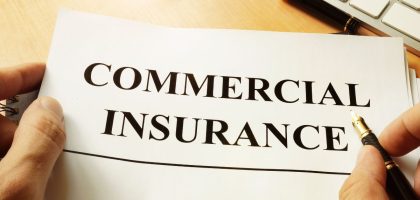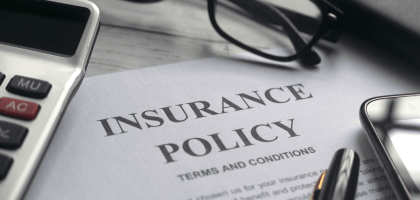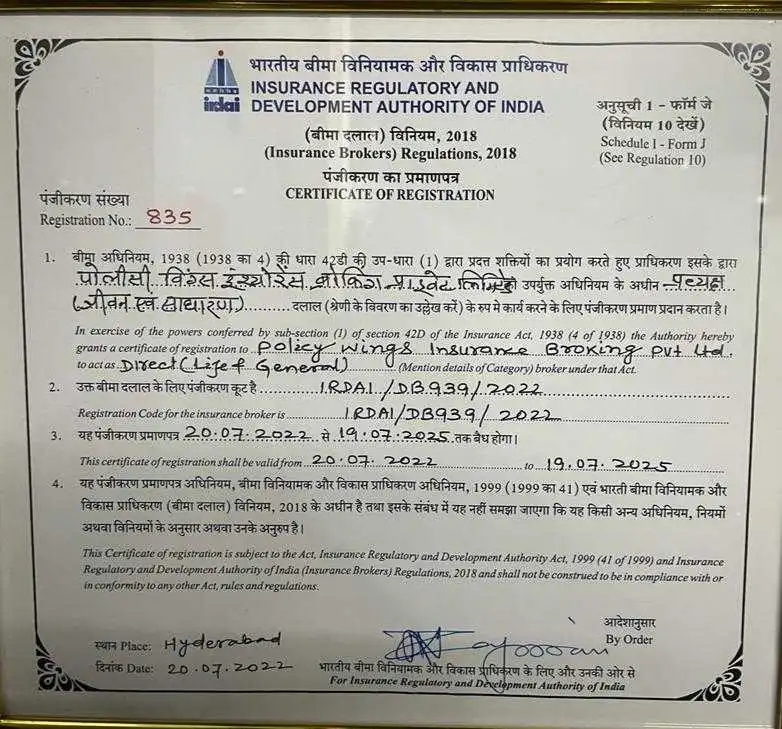Commercial Insurance: A New Business Starter Kit Entrepreneurship: Starting a new business is an exciting venture, not because of the easy things that lie ahead but for the many opportunities available. However, regardless of how new, there is always a type of risk that surrounds any new venture. One of the major ways you can shield your startups from certain unforeseen risks is through commercial insurance. Commercial insurance is tailored for your business. Hence, matters such as litigation, property damage, and many more will not be directed towards your till. So, here’s a detailed version of some need-to-know features of commercial insurance for startups and why it’s going to prove to be crucial to your future success. Do Startups Really Need Commercial Insurance? Startups are perceived to start with uncertainties like market risk, operational malfunctions, and even legal problems. It is at this point where commercial insurance will come in to protect your startup business venture. These are a few reasons why every startup has to invest in commercial insurance: Liability protection: Legally, your organization may be liable to the damage or injury being caused due to your product, services, and operations. The liability cost for the same is taken care of by commercial insurance by paying the legal cost. Covers of Properties under Insurance: In case your business operates at a small office or warehouse, it will surely be the lifeblood of any venture. This is where commercial property insurance covers buildings or premises of your business. It also covers equipment against theft, fire, or any acts of nature that will come without warning. Employee Coverage: If you have other employees then it is highly obvious that in most places you will be needed to have; that is, you should ensure that you have worker’s compensation coverage. Such a feature guards not only your employees but your business as well in case of injuries among other workplace injuries against costs related to medication and lost wages. Business Continuity: Recovery from some unforeseen incident such as an act of nature will be easier with the insurance cover. With business interruption insurance, there would be a loss from idle time, so you can continue operating the business or get back into full production much sooner. Compliance: Depending on your business and where you are located, most startups are strictly necessary to have some forms of insurance, such as workers’ compensation or liability coverage. Types of Commercial Insurance Every Startup Should Consider Knowing the types of insurance policies will help you make up a decision as to what fits your needs best. Here are some of the most common ones: General Liability Coverage General liability insurance covers court costs and damages as incurred if the law finds your business liable to injuries of persons or property and claims for personal injury. All start-ups require general liability insurance since small and apparently inconsequential incidents can blossom into costly lawsuits. Example Application: If your customer, who eventually becomes your company, slip and falls at your office, then your general liability insurance will pay up their medical bills as well as any court case against your business. Commercial Property Insurance Commercial property insurance protects the physical business assets of your company, covering such items as buildings and buildings structures, equipment, and inventory. Common causes of damage include fire, theft, vandalism, or any form of natural disasters. Example: When there is a fire break in your office, it is commercial property insurance that will indemnify the repairs or reconstruction. Errors & Omissions Insurance Also Known as Professional Liability Insurance Any start-up professional, or consulting firm, should ensure that it acquires the most important form of insurance, for instance professional liability insurance; an example here is a consultant of lawyers, for instance accountants and the like because professional liability covers claims owing to negligence, misrepresentation, and/or incomplete work. Example: When the client tells you that they lost their money on the strength of your services, professional liability insurance will provide legal representation and settlements. Workers’ Compensation Insurance If you have employees working for your business, you are legally obligated to carry workers’ compensation insurance. That will help cover treatment and lost income and provide rehabilitative services should one of your employees be hurt at work or off work. For instance, if one of your employees suffers a work-related injury, lost wages and costs you incur while absent from work recovering from time lost will be compensated under workers’ compensation insurance. Business Interruption Insurance Business interruption insurance reimburses you for income and operating costs you are unable to earn and sustain when your business is required to close for a time due to an unforeseen event occurring to your business, such as a hurricane. Example: If flood makes your office uninhabitable and you cannot do business there for several weeks, business interruption insurance will pay lost revenues and operating expenses that occurred during the time the business was put on hold. Cyber Liability Insurance To cyber liability insurance, startups require it, especially where they have to deal with sensitive information about customers. This cover avails itself in any loss following a break in data, cyber attack, and any other form in connection with the internet. Case in point: If your system hacks into public customer information, cyber liability insurance will take care of the communication cost incurred to the parties involved, lawyer fees, and fines a breach attracts. Factors of Choosing Commercial Insurance : Choosing the right sort of commercial insurance for your startup can prove pretty daunting. Of late, a few essential factors one needs to consider during a choice have been discussed below, keeping in view the following. Industry-Specific Risks: Every industry will, of course, have different risks. For example; the risks that a cyber liability insurance will involve for a tech start up will probably be much more than those in a general liability cover needed for
...Common Mistakes Small Business Owners Make in Insurance and How to Overcome Them Bashing it down, running a small business is like a complex collection of challenges popularized by financial and operational issues. With any significant feature running a business, an adequate coverage with proper insurance does not lag behind this need. However, most small business owners forget some very critical factors while purchasing insurance and, hence, end up making expensive mistakes that run the risk of jeopardizing the future of the business. This paper addresses common mistakes done by small business owners on insurance as well as practical tips that help to avoid such mistakes. Underinsuring the Business Most small business owners underestimate the amount of insurance required, and they mostly end up under-insured in a really understated way. Many owners try to cut costs so as to reduce the overhead costs of running a business, or they are simply not adequately informed regarding the risks entailed by running a business. At this stage, only enough coverage should appear like a waste if such an accident or litigation occurs, or if the company experiences natural disasters because what the company pays out may still be less than the damage resulting. Avoid It By: Find an insurance agent who understands your type of business and keep him informed on any change of coverage you may need. Periodically review the valuation of any business insurance you are running on the assets of your business, especially property, equipment, and stock for maximum coverage at all times. Update your insurance as your business grows. Miscellaneous Errors Small-scale business owners seem to believe that they need general liability insurance if they operate from home or see fewer customers. General liability, however is extremely basic in covering your venture against cases of damage to property, bodily and advertising injuries. Your firm will be a victim of litigation that will suck significant amounts of money out without this type of insurance cover. How to Avoid It Even if your business does not operate directly with the public, accidents can still happen. Be sure to get general liability coverage for an unforeseen accident, such as a client slipping and falling on your premises or the damage that someone causes to other people’s property. Lack of Knowledge Regarding What’s Excluded Most small business owners commit one of their biggest mistakes there-that is, they don’t know what their exclusions are under the policy. A policy normally provides exclusions to some other things that will not be covered under the policy. Some things cannot be covered even by insurance coverage. There are some events or conditions that are not even covered through insurance coverage. For example, business insurance policies often exclude any form of damage caused by natural calamities. Floods and earthquakes are examples of natural calamities, which happen to be some of the most common exclusion items on most insurance policies. It is actually at these exclusions that the opportunity exists to make such potential out-of-pocket disaster expenses if one doesn’t understand the nature of what these exclusions are. Avoid It: Read the whole policy and ask your agent to explain all the exclusions. If you need it, buy additional coverage for specific risk, like flood insurance or business interruption insurance. Literally, unawareness of what’s covered and what’s not is what makes you better prepared against possible risks. Lack of Workmen Compensation Insurance Workers’ compensation insurance is legislatively mandated in most states and countries of all businesses having employees. Sad to say, some business owners think themselves exempt or they only have a few employees and therefore do not carry this important coverage. Such a mistake would attract heavy fines, lawsuits, and very possible closure of their business in the event of an employee’s injury at work without adequate insurance. How to Avoid It: Know the laws of the states or jurisdictions that oblige you to have workers’ compensation. Even your company has just a handful of employees, such businesses have to make sure that there is workers’ compensation insurance because such preventive measures not only shield your business but also your employees from something worse happening, and then an injury or illness occurs. Failure to Provide Business Interruption Insurance Probably at the top of the list of all the types of insurance that small businesses often forget or overlook is business interruption. Business interruption coverage helps businesses from lost income, usually due to temporarily closing down operations owing to damage from a covered event. Without that, you would not be able to pay your rent, payroll, and utilities, which seem to keep going on their own. Prevention Ensure that you cover business interruption insurance. This will mean that your business would be in a position to pay off its debts and other monetary responsibilities as temporarily closed. You are supposed to carry out policy limit analyses taking into consideration the firm’s operating cost for the period of interruption. Dependence on Personal Insurance Most of the small business owners, in particular, single proprietors trap themselves by using personal policies for all the business risks. For example, they feel that car accidents that may happen while on business will be covered under personal auto insurance. In most cases, this is not so, and personal policies offer little protection to business activities. How to Avoid: Then make sure that you also have many business insurance covers for your business. For example, if you go to work and you own a car, which takes you to work, then you should have commercial auto insurance. If you work from home, then you will need business property insurance so that you may cover business assets and liabilities that your homeowner’s insurance does not cover. Rarely Review Policies The world is dynamic, as are businesses. So should your insurance cover be approached on a dynamic basis. Of course, the small business rarely revises its policy, which creates a gap in the coverage or sometimes outdated limits
...Latest Blogs
How to Choose the Right Business Insurance for Your Industry? Running a business is a rewarding venture, but it also comes with risks. Whether you’re a small startup or a large corporation, business insurance is essential to protect your assets, employees, and ultimately, your business. However, insurance needs can vary significantly depending on your industry, and choosing the right coverage can be overwhelming. In this blog, we’ll break down how to choose the right business insurance for your industry, ensuring that your company has the tailored protection it needs to thrive, even when faced with unexpected challenges. Understand Your Industry’s Specific Risks The first step in choosing the right insurance is understanding the risks unique to your industry. For example, a construction company faces different challenges than a retail store, and a healthcare provider has risks that don’t apply to a tech startup. Knowing your industry’s common liabilities will help you determine which types of insurance are suitable for you. Retail and Manufacturing: Businesses in this sector may need commercial property insurance to cover theft, fire, or vandalism, and general liability insurance to protect against customer injuries on the premises. Professional Services: Lawyers, consultants, and accountants may need professional liability insurance (errors and omissions insurance) to cover potential negligence claims. Determine Legal Requirements Certain types of insurance are mandatory depending on the industry and your location. Ensuring compliance with local laws is crucial for running a successful business. For example: Workers’ Compensation: Most jurisdictions require businesses to carry workers’ compensation insurance to cover medical expenses and lost wages for employees injured on the job. Professional Liability Insurance: In sectors like law, medicine, and accounting, this coverage is often legally required in various jurisdictions. Research the specific insurance regulations for your industry to ensure you’re meeting all legal obligations. Evaluate Your Business Assets Your business assets include physical property, equipment, intellectual property, and even your reputation. The right insurance coverage should protect the key elements to protect your assets. If you own or lease commercial space, property insurance covers damage to your building, equipment, and inventory due to incidents like fire, vandalism, or natural disasters. With the rise of cyber threats, businesses that handle sensitive data (such as customer information) should consider cyber liability insurance to protect against data breaches, hacks, or phishing attacks. Consider Liability Coverage Liability is one of the biggest risks businesses face, regardless of industry. Whether it’s customer injury, product malfunction, or professional mistakes, liability insurance protects you from costly lawsuits and claims. General Liability Insurance is essential for most businesses and covers third-party claims of bodily injury, property damage, and legal defence costs. Manufacturers and retailers should consider product liability insurance to protect against lawsuits resulting from defective products. Professional Liability coverage is essential for service-based industries and covers claims of negligence, errors, or failures in your professional services. Account for Business Size and Growth The size of your business and future growth plans should influence your insurance decisions. A small startup may only need basic coverage, but as your business grows, so will your exposure to risks. Make sure your insurance policy evolves with your business. As businesses expand, unexpected events like natural disasters or a fire can halt operations. Business interruption insurance can cover lost income during these periods, ensuring you can recover without financial strain. For larger businesses or those expecting rapid growth, umbrella insurance provides additional liability coverage beyond the limits of your standard policy. This is especially useful if your business faces a high risk of expensive lawsuits. Review the Insurer’s Industry Experience Not all insurers are equal, and some specialize in certain industries. Working with an insurance company that has experience in your field can be beneficial. They will understand the unique challenges your business faces and offer tailored solutions. Look for insurers that offer specialized policies for your industry. For example, a technology-focused insurance provider may offer better cyber liability coverage than a general provider. Research the insurer’s reputation, especially regarding their claims process. A company with a smooth, customer-friendly claims process will save you time and stress when you need to file a claim. Bundle Policies for Better Coverage and Savings Many insurers offer the option to bundle different types of policies, which can save money while ensuring comprehensive coverage. Some insurance providers allow you to choose specific coverage types that fit your business needs. Review and Adjust Coverage Regularly Business needs change over time, and your insurance coverage should reflect that. Regularly reviewing your insurance policies ensures that you’re not paying for unnecessary coverage and that you have adequate protection as your business grows or evolves. Conduct a periodic review of your insurance policies, adjusting coverage limits or adding new types of insurance as your business landscape changes. Working with an experienced insurance advisor can help you assess whether your coverage is still suitable or if it’s time to make changes. Conclusion Choosing the right business insurance isn’t just about meeting legal requirements, it’s about safeguarding your business from potential risks that could impact your operations and profitability. By understanding your industry’s specific risks, assessing your assets, and choosing tailored policies, you can ensure your business has the protection it needs to succeed. Take the time to evaluate your business insurance needs carefully, and consult with an insurance expert if needed. With the right coverage, you can focus on growing your business with confidence, knowing that you’re prepared for whatever comes your way.
...General Liability Insurance vs. Professional Liability Which Does Your Business Need? Running a business involves a lot of moving parts, and protecting your business from potential risks is a key priority. Among the many considerations is ensuring that you have the right insurance coverage. Two commonly confusing types of insurance are General Liability Insurance and Professional Liability Insurance. Both serve different purposes, and choosing the right one or determining if you need both can have a significant impact on your business. Let’s take a closer look at the differences between the two and help you decide which coverage best suits your business needs. Understanding General Liability Insurance General liability insurance provides coverage for claims that involve bodily injury, property damage, or advertising injury resulting from your business operations. It acts as a safety net when your business activities lead to accidental harm or damage to others. This insurance is particularly relevant for businesses that interact with the public, such as: Retail stores Contractors Restaurants Event planners For example, if a customer slips and falls on your business premises or if your equipment causes damage to a client’s property, general liability insurance can cover legal fees, medical costs, and potential settlements. General liability insurance is like the all-rounder in your insurance toolkit. It covers a broad range of issues, primarily focused on accidents or injuries that happen on your business premises or are caused by your business. It’s typically used for claims involving: Bodily injuries (like the slipped customer) Property damage (like that unfortunate sign) Advertising injuries (accidentally using someone’s intellectual property in your marketing) In short, if your business interacts with the public in any way, general liability insurance is a must. It provides a financial safety net if someone sues you for injury or damage that happens due to your business operations. What Is Professional Liability Insurance? On the other hand, professional liability insurance often referred to as errors and omissions (E&O) insurance, covers claims related to the professional services your business provides. This type of insurance is designed for businesses that offer advice, expertise, or specialized services. If a client claims that your professional advice or services caused them a financial loss due to negligence, errors, or omissions, professional liability insurance provides coverage for legal defence costs and damages. Think of it as coverage for “uh-oh” moments when things don’t go as planned. A few examples: You’re a consultant and give advice that leads to a client losing money. You’re a graphic designer, and a client is unhappy with your final design because it didn’t match their brief. You’re a lawyer, and a client feels your services weren’t up to par, resulting in a financial loss. Professional liability insurance steps in to cover legal fees and any settlements or judgments made against your business if you’re sued for negligence or mistakes in your work. Which Insurance Does Your Business Need? Choosing between general liability and professional liability insurance or determining if you need both depends on the nature of your business. The short answer? It depends on the nature of your business. If you’re in a profession that provides services or advice like a consultant, lawyer, accountant, designer, etc., you’ll definitely want to invest in professional liability insurance. Since you’re being paid for your expertise, even a small error or perceived mistake could lead to a costly lawsuit. If your business deals with the public whether through a brick-and-mortar shop, a construction site, or public events, you’ll want general liability insurance to protect against accidents and injuries that might happen on-site or because of your business operations. What if you need both? It’s not uncommon! If your business both provides services and involves public interactions (e.g., a marketing agency that hosts client meetings in-house), you may need both general liability and professional liability insurance to fully protect yourself. Evaluating Your Risk and Coverage Needs Understanding the potential risks associated with your business will help determine the most appropriate insurance coverage. Here are a few questions to consider: Does your business have physical premises where accidents could happen to third parties? Do you provide specialized services or advice that could lead to financial or reputational damage for your clients if something goes wrong? Are you required by contract or law to carry specific types of insurance to conduct your business? Taking these factors into account will give you a clearer picture of the type of insurance you need. Conclusion Both general liability insurance and professional liability insurance serve important but distinct roles in protecting your business. By carefully considering the nature of your business operations, potential risks, and client interactions, you can determine which type of coverage is right for you or if a combination of both is necessary. Ultimately, consulting with a trusted insurance advisor can ensure that you make an informed decision and secure the protection that best aligns with your business’s specific needs.
...Business Insurance for MSMEs vs Large Enterprises: Key Differences When it comes to protecting your business, insurance is like that invisible safety net you hope you’ll never need but are glad you have. Whether you’re a thriving MSME (Micro, Small, and Medium Enterprise) or a massive enterprise, insurance is crucial for safeguarding your operations, assets, and future growth. But here’s the kicker, not all insurance policies are the same. MSMEs and large enterprises have unique needs, and that means their insurance plans differ in terms of coverage, costs, and customization. Let’s break down the key differences so that you can better understand what suits your business, no matter the size or scale! Coverage Breadth: Comprehensive vs. Focused Large enterprises tend to have much more complex operations, and their insurance needs are accordingly broader. They usually require comprehensive coverage that includes a wide range of protections, from employee liability, product recalls, and cybersecurity to global property insurance. These businesses typically operate across different regions or countries, meaning they need insurance that covers their diverse global operations. On the other hand, MSMEs usually need more focused coverage. These businesses typically stick to fewer products or services and operate locally or regionally. An MSME may not need the extensive global property coverage that large corporations do but would benefit from tailored packages such as property insurance, general liability, or professional indemnity insurance. They often opt for industry-specific policies, which can reduce unnecessary costs. While large enterprises go for “everything under the sun” insurance, MSMEs can focus on policies that target their specific pain points. Cost of Premiums: Scaled Pricing Let’s face it, the bigger the company, the higher the insurance premiums. Large enterprises pay significantly more, and while this might seem daunting, there’s a reason. Their larger footprint and higher risk exposure, due to the number of employees, clients, and regions they serve justify the higher costs. Plus, they may require multiple policies for the various aspects of their business. For MSMEs, insurance is usually more affordable, and there are often bundled policies tailored specifically to small businesses that combine multiple coverages into one manageable package. Larger businesses pay more because they have more at stake, but MSMEs can find affordable solutions tailored to their smaller-scale operations. Customization and Flexibility Here’s where the difference in size of the corporation starts to really show. Large enterprises often have entire teams dedicated to risk management. They will work closely with insurance providers to tailor policies, and they frequently require customization to address their specific, and often complex, risks. MSMEs, however, may not have the resources or time for such bespoke policies. But the upside is that they can usually opt for simpler, pre-packaged insurance policies that are easier to manage and understand. Many insurance companies offer MSMEs straightforward coverage options, knowing that small businesses need protection without the hassle of managing too many moving parts. Large enterprises customize heavily, while MSMEs benefit from more straightforward, ready-made solutions. Risk Management Resources Large enterprises often have access to advanced risk management tools. Insurers may provide services like regular risk assessments, on-site evaluations, or even access to specialized risk consultants. These businesses need to mitigate risks across various departments, be it HR, cybersecurity, or product liability. In contrast, MSMEs don’t always have such extensive resources. However, they are increasingly benefiting from digital tools that insurers now offer, like online risk assessments or easy-to-use platforms for tracking claims. While they may not need a full-time risk manager, these digital solutions can help them stay on top of their risk exposure. Big businesses often get the white-glove treatment for risk management, but MSMEs are gaining access to simplified, digital solutions. Claims Handling and Service Support Imagine you’ve suffered a loss, maybe a fire or a product recall. When it comes to claims handling, large enterprises usually receive personalized claims support due to their high premiums and long-term relationships with insurers. They may even have dedicated teams that liaise with insurance companies to ensure smooth claims processing. MSMEs may not have that level of personalized service, but many insurers now offer faster, more efficient claims processes tailored to smaller businesses. Some companies provide MSMEs with self-service portals where claims can be filed quickly online, significantly reducing the headache during an already stressful situation. Both large enterprises and MSMEs are seeing improvements in claims handling, but larger companies get more dedicated support. Regulatory Requirements Larger companies often have stricter regulatory requirements, especially if they operate in multiple countries or industries that require compliance with specific laws. For instance, a multinational corporation in the pharmaceutical industry would need insurance that covers the liability arising from strict regulations. MSMEs, especially those operating domestically, might not face the same level of regulatory scrutiny. However, they still need to ensure they’re meeting local insurance regulations, like workers’ compensation and general liability, depending on their industry and the number of employees. Larger companies navigate a more complex regulatory landscape, while MSMEs focus on meeting local or industry-specific insurance requirements. Conclusion While both MSMEs and large enterprises need insurance to protect their business interests, the scale, complexity, and specific needs of their coverage can differ dramatically. For small business owners, insurance is often about managing costs and getting the essentials in place. Large enterprises, meanwhile, require a more strategic and all-encompassing approach. Whether you’re running a small café or a multinational tech company, understanding your unique business insurance needs will go a long way in making sure you’re protected from life’s unpredictable moments.
...5 Key Insurance Policies Every MSME Needs to Protect Their Business Introduction An often-overlooked aspect of running a successful Micro, Small, or Medium Enterprise (MSME) is ensuring that the business is adequately protected from unforeseen risks. As MSMEs navigate unpredictable market dynamics, changing regulations, and operational challenges, safeguarding the business becomes more critical than ever. One powerful way to mitigate risk is by investing in the right insurance policies. From covering potential liabilities to protecting physical assets, insurance is a vital safety net for business continuity and financial stability. In this blog, we will explore the 5 key insurance policies every MSME should consider to ensure comprehensive protection. Understanding and implementing these insurance solutions can help your business weather unexpected disruptions while focusing on growth and innovation. General Liability Coverage General Liability Coverage protects MSMEs from third-party claims related to bodily injuries, property damage, and personal or advertising damages occurring on business premises or due to business operations. This policy is essential for safeguarding against lawsuits, legal fees, and potential settlement costs. It also covers medical expenses for injuries sustained by customers or clients on the business property. Whether you own a retail store, office, or warehouse, General Liability Insurance ensures that your business is protected against unexpected liabilities, providing financial security and peace of mind in the event of accidents or claims. Business Interruption Insurance Business Interruption Insurance provides MSMEs with financial protection when an unexpected event, such as a fire or natural disaster, disrupts normal business operations. This policy covers lost income and operating expenses, including payroll, rent, and utilities, during the recovery period. By compensating for lost profits, Business Interruption Insurance helps businesses maintain financial stability and recover more quickly from temporary closures or operational disruptions. It ensures that even if your business faces an unexpected halt, it can continue to meet its financial obligations and minimize long-term damage. Commercial Property Insurance Commercial Property Insurance safeguards the physical assets of an MSME, such as buildings, equipment, inventory, and furniture, against losses caused by fire, theft, vandalism, natural disasters, or other unforeseen events. Whether you own or lease property, this policy ensures your business can recover quickly from damage or destruction, minimizing financial loss and downtime. In addition to covering repairs or replacement of damaged assets, this insurance can also extend to loss of income resulting from property damage, allowing MSMEs to maintain continuity during recovery periods. Cyber Liability Insurance Cyber Liability Insurance protects MSMEs from the financial impact of cyberattacks, data breaches, or other digital security threats. As businesses increasingly rely on technology, they become more vulnerable to hackers, ransomware, and data theft. This insurance covers the costs of legal fees, notification of affected customers, credit monitoring services, and data recovery following a cyber incident. In an age where cybersecurity is critical, Cyber Liability Insurance ensures that MSMEs can mitigate financial losses and reputational damage, providing a crucial layer of protection against the evolving landscape of digital threats. Professional Liability Insurance Professional Liability Insurance, also known as Errors and Omissions (E&O) Insurance, is crucial for MSMEs offering professional services or advice. It protects businesses from claims of negligence, misrepresentation, or failure to perform services, which could result in financial loss for clients. Even if a claim is unfounded, legal defence costs can be significant. This policy ensures that professionals such as consultants, accountants, and service providers are protected against the financial consequences of errors, omissions, or professional mistakes, helping businesses avoid potential bankruptcy due to expensive legal battles. Conclusion In today’s ever-evolving business landscape, protecting your MSME from potential risks is crucial for long-term success. The right insurance policies act as a safety net, allowing you to focus on growth while mitigating unexpected disruptions. Whether it’s safeguarding against liabilities, protecting property, or ensuring business continuity during crises, these five key insurance policies provide essential protection. By investing in these policies, your MSME can remain resilient, secure, and prepared to navigate both opportunities and challenges that lie ahead.
...How to Protect Your Business Against Cyber Threats with Cyber Insurance? Introduction In today’s digital age, businesses of all sizes are increasingly vulnerable to cyber threats. From data breaches to ransomware attacks, the cost of cybercrime is rising, and traditional insurance policies often don’t cover these risks. This is where cyber insurance comes in. Cyber insurance is designed to mitigate the financial impact of cyber incidents, offering protection that goes beyond standard liability coverage. In this blog, we’ll explore how cyber insurance can safeguard your business and why it should be a critical component of your overall risk management strategy. Whether you’re a small startup or an established enterprise, understanding cyber insurance can help you stay resilient in the face of ever-evolving cyber risks. What is Cyber Insurance? Cyber insurance, also known as cyber liability insurance, is a type of insurance policy designed to protect businesses from the financial fallout of cyberattacks or internet-based threats. These incidents can range from data breaches, hacking, ransomware attacks, or any other form of cybercrime that affects a company’s operations, data, or customers. Unlike traditional insurance, which may not cover losses related to digital attacks, cyber insurance is specifically tailored to address the unique risks businesses face in the digital world. Coverage typically includes costs associated with data recovery, legal fees, notification to affected customers, credit monitoring for impacted individuals, and even public relations expenses to manage reputational damage. Cyber insurance policies can also help businesses recover from financial losses caused by business interruption, extortion demands, and regulatory fines resulting from data breaches. As cyber threats continue to evolve and become more sophisticated, cyber insurance provides an essential layer of protection, ensuring that businesses can respond effectively to incidents without being overwhelmed by the associated costs. Why do you need Cyber Insurance? Rising Cyber Threats: With the increase in cyberattacks, including ransomware and data breaches, businesses are more vulnerable than ever. Cyber insurance helps mitigate the financial impact of these threats. Financial Protection: Cyber incidents can lead to significant financial losses due to data recovery costs, legal fees, regulatory fines, and business interruptions. Cyber insurance provides coverage for these expenses, reducing the financial burden on the business. Customer Trust and Reputation Management: A cyber incident can severely damage a company’s reputation. Cyber insurance often includes crisis management services that help businesses manage public relations and rebuild customer trust after a breach. Legal Support: In the event of a data breach, businesses may face lawsuits from affected customers or clients. Cyber insurance can cover legal costs and settlements, protecting the company’s financial stability. Incident Response and Recovery: Many cyber insurance policies include access to a network of experts who can help businesses respond to incidents, including forensic analysis, data recovery, and public relations assistance. Business Interruption Coverage: Cyber-attacks can disrupt operations, leading to lost revenue. Cyber insurance can cover losses incurred during the downtime, helping businesses stay afloat during recovery. Peace of Mind: Knowing that there is financial protection against cyber threats allows business owners to focus on their core operations, fostering innovation and growth without the constant worry of potential cyber incidents. Choosing the Right Cyber Insurance Plan Choosing the right cyber insurance plan involves a thorough assessment of your business’s specific needs and risks. Start by conducting a risk assessment to identify potential vulnerabilities, such as the type of data you handle, your industry regulations, and your existing cybersecurity measures. Once you have a clear understanding of your risk profile, compare various insurance providers and their offerings. Look for coverage options that address your unique threats, including first-party and third-party liabilities, data breach costs, business interruption, and legal fees. It’s essential to read the fine print of each policy to understand exclusions and limitations. Additionally, consider the provider’s reputation, claims process, and customer support. Engaging with an insurance broker specializing in cyber insurance can also provide valuable insights and help you navigate the complexities of the coverage options available. Finally, ensure that the policy you choose not only meets your current needs but is also adaptable as your business evolves and the cyber threat landscape changes. Conclusion In today’s digital landscape, cyber insurance is essential for protecting businesses against the growing threat of cyber incidents. It provides financial coverage and resources to help mitigate the impact of attacks and support recovery efforts. By understanding the importance of cyber insurance and how to select the right policy, you can better safeguard your business and enhance your reputation among customers and stakeholders. Ultimately, investing in cyber insurance not only protects your bottom line but also fosters resilience in an increasingly interconnected world.
...How To File A Claim For Medical Insurance In India? Introduction Filing a claim for medical insurance in India can be a daunting task, especially if you’re unfamiliar with the process or dealing with a medical emergency. However, understanding the necessary steps and documentation can make the experience smoother and help you get the financial support you need. In this blog, we’ll guide you through the entire process of filing a claim under your health insurance policy, whether it’s a cashless claim or a reimbursement. What is health insurance? Health insurance is a safety net that helps cover medical expenses when you fall ill or face an unexpected health issue. It’s not just about saving money on hospital bills—having a policy gives you peace of mind, knowing that in a medical emergency, you can focus on recovery without worrying about the financial burden. Types of Claim Processes available in India Cashless– The cashless claim process allows you to receive medical treatment at a network hospital without paying out of pocket at the time of admission or discharge. Instead of paying upfront, the insurance company settles the hospital bills directly. To use this facility, you need to show your health insurance card at the hospital, fill out a pre-authorization form, and once the insurer approves it, your treatment expenses are covered under the policy terms, minus any exclusions or deductibles. Reimbursement– The reimbursement claim process involves you paying for your medical treatment upfront and then claiming the expenses from your insurance company. After you’re discharged from the hospital, you submit the necessary documents such as hospital bills, discharge summary, prescriptions, and other medical reports along with a filled claim form to your insurer. The insurance company will review your claim, and if everything is in order, they will reimburse the amount as per your policy coverage, directly to your bank account. Step by step guide on How to file Medical Insurance Claim Whether you’re opting for a cashless claim or a reimbursement claim, the process of filing a medical insurance claim in India can be made easy by following these steps: Understand what your policy covers Before initiating any claim, properly review your policy to understand what medical expenses are covered, such as hospital stays, treatments, medications, and any exclusions or waiting periods. Inform Your Insurance Provider Cashless Claim: Contact your insurance company as soon as possible, ideally before hospital admission, or within 24 hours in case of emergencies. Reimbursement Claim: Inform the insurer about your hospitalization and treatment soon after being admitted. Each insurer has a specific timeframe, so ensure you notify them within that window. Choose a Network or Non-Network Hospital Cashless Claim: Select a hospital from your insurance company’s list of network hospitals to avail of the cashless facility. Reimbursement Claim: You can choose any hospital (network or non-network), but you’ll need to pay upfront and file for reimbursement later. Submit a Pre-Authorization Form (For Cashless Claim Only) At the network hospital, present your health insurance card and fill out a pre-authorization form available at the hospital’s insurance desk. The hospital will submit this form, along with required medical details, to your insurer for approval. Get Approval from the Insurance Provider Cashless Claim: Once the insurance provider reviews the pre-authorization form, they will approve or deny the cashless claim. Upon approval, you don’t need to pay for treatment (excluding non-covered expenses or co-payments). Reimbursement Claim: There’s no pre-authorization here. Instead, focus on collecting all treatment-related documents. Collect and Organize All Required Documents (Both Claims) You should carry all the original documents which were used for the treatment like diagnosis reports, discharge Summary, bills/receipts, and medical reports/tests along with KYC and bank related documents for reimbursement claims. Submit the Documents Cashless Claim: The hospital typically handles this process once your treatment is completed, coordinating with the insurer directly. Reimbursement Claim: You need to submit all the collected documents to your insurance provider after discharge. Some insurers allow this to be done online, while others may require physical submission. Follow Up on Your Claim Stay in touch with your insurer for any updates or additional document requests. Most companies offer a claim tracking option through their website or mobile app. Claim Settlement Cashless Claim: Once approved, the insurer settles the bill directly with the hospital, and you only need to cover expenses not included in the policy (like non-medical items). Reimbursement Claim: After reviewing the documents, the insurance company will reimburse the covered amount directly to your bank account, usually within a few weeks. Conclusion Filing a medical insurance claim in India doesn’t have to be complicated if you’re well-prepared and know the steps involved. Whether you opt for the convenience of a cashless claim or the reimbursement route, understanding the process and having the right documentation can make a world of difference. By staying informed about your policy, acting promptly, and keeping track of your paperwork, you can navigate the claims process with ease. Health insurance is meant to reduce financial stress during medical emergencies, and with the right approach, you can fully benefit from the coverage your policy provides.
...Why MSMEs Need Comprehensive Insurance Coverage? Introduction Setting up a small concern is a significant investment for many who put in their entire life savings into setting up the business. These Micro Small and Medium Enterprises form the backbone of the Indian economy. However, their very nature with limited resources and small- scale operations make them more vulnerable to a great deal of risk and uncertainties. They often struggle more than larger businesses to cope with risks. From natural disasters to legal liabilities, unforeseen events can disrupt or even shut down MSMEs, leading to significant financial losses. Given their limited capacity to absorb such shocks, these businesses need comprehensive protection to secure their operations, assets, and financial health. Insurance can help MSMEs better manage risks, giving them access a greater variety of risk management tools and give them the confidence of taking more productive investment decisions. Ensuring adequate insurance coverage is crucial for safeguarding these businesses against potential threats. In this blog, we explore in detail why MSMEs need comprehensive insurance protection. Risk of Property or Equipment Damage MSMEs often operate on limited funds, making their ability to recover from property damage or equipment failure a challenge. Physical assets, including buildings, machinery, inventory, and raw materials, can be damaged due to various factors like fire, theft, floods, and other natural calamities. Unforeseeable breakdown of machinery can bring the entire manufacturing process to a stop which might lead to losses. Many MSMEs struggle to rebuild after such accidents, often resulting in business closure. Comprehensive property insurance can help MSMEs manage these risks by providing coverage for the repair or replacement of damaged assets, ensuring business continuity. Liability Protection One of the most significant risks for MSMEs is legal liability, whether related to product defects, employee safety, or contractual breaches. Small businesses, particularly those in manufacturing or retail, may face lawsuits from customers for defective products or services. Similarly, workplace accidents may lead to claims of negligence. Without adequate insurance, MSMEs can be forced to bear substantial legal costs and compensation payouts, which can severely drain their resources. Comprehensive insurance coverage that includes product liability and employer’s liability insurance, can protect MSMEs from these financial setbacks. It ensures that legal costs, settlements, and compensation related to third-party claims are covered, enabling businesses to focus on their core operations without the constant fear of legal repercussions. Business Interruption MSMEs are particularly vulnerable to disruptions in their operations due to unforeseen events such as natural disasters, fires, or pandemics. The COVID-19 pandemic, for example, led to the closure of thousands of small businesses globally due to extended lockdowns and supply chain disruptions. When an MSME is unable to operate due to such events, it continues to incur fixed costs like rent, employee salaries, and utilities, even though its revenue stream is cut off. A Comprehensive insurance policy provides a financial cushion by covering lost income and ongoing expenses during the period of disruption. This coverage allows MSMEs to recover more quickly, minimize losses, and resume operations once the disruption is resolved. Loan and Legal Requirements Many financial institutions and large contractors require businesses to have adequate insurance coverage as a prerequisite for obtaining loans or entering into contracts. Insurance acts as a form of collateral, ensuring lenders and partners that the business is protected against key risks. This is particularly important for MSMEs looking to expand operations, enter new markets, or secure government contracts. In the absence of comprehensive insurance, MSMEs may struggle to secure financing or miss out on lucrative business opportunities. Tailored Insurance Solutions for MSMEs Unlike large corporations, MSMEs have unique needs and limitations. This requires customized insurance solutions to cater to them specifically. Insurance providers are increasingly offering tailored policies designed specifically for MSMEs, providing them with flexible coverage options that address unique industry-specific risks and financial constraints. By choosing the right combination of insurance policies, MSMEs can manage their risk exposure more effectively and ensure that they are protected against both predictable and unforeseen threats. Conclusion For MSMEs, comprehensive insurance is not just an added expense; it is an investment in the long-term sustainability and growth of the business. In a highly uncertain business environment, insurance provides a safety net that allows MSMEs to focus on innovation, expansion, and creating value without being derailed by unexpected setbacks. Proper insurance coverage is a critical enabler of resilience, competitiveness, and success in today’s dynamic market.
...Why Is It Necessary To Take Insurance? Imagine waking up one day to find that your car stolen, your home damaged by a sudden storm, or a medical emergency has left you with a hefty hospital bill to pay off. Life can sometimes be very scary and unpredictable, and while we can’t control the bizarre twists and turns it takes, we can ensure that we are protected from the financial fallout. This is where insurance steps in. It is more than just a financial safety net; it’s peace of mind, a superhero who can protect you against the unknown and make you feel safe in this world of uncertainty. In this blog, we explore why taking insurance isn’t just a smart choice—it’s a necessary step in moving on from the past, enjoying the present worry-free and safeguarding the future. Unexpected Challenges and High Costs Insurance is not just an option, it’s a financial necessity in today’s unpredictable world. From sudden medical emergencies and car accidents to unforeseen natural disasters or personal setbacks, life can throw unexpected challenges at you when you least expect them. These challenges often come with high costs like hospital bills, vehicle repairs, or property damage that can quickly drain you financially. Protecting Your Financial Stability Without proper insurance coverage, you could be left to bear the full brunt of these expenses, which could wipe out your savings, force you into debt, or delay other financial goals like buying a home or securing your retirement fund. By investing in insurance today, you’re essentially paying a small premium today to protect your future self. It acts as a shocker, protecting you from the bumpy ride of financial hits and offers long-term security, ensuring that even in the face of a crisis, you and your family can recover without any major permanent setbacks. Whether it’s life insurance securing your family’s future or health insurance helping you out with expensive medical bills, having the right coverage is key to maintaining financial stability in the face of uncertainty. Reducing Stress and Anxiety Insurance provides more than just financial protection; it offers peace of mind that can have profound emotional and mental benefits. Knowing that you are covered in case of emergencies relieves a significant amount of stress and anxiety, especially in situations where things could go wrong at any moment. Whether it’s the worry of a sudden illness, a car accident, or damage to your home, the assurance that you won’t be left to handle the costs can reduce the emotional burden. This peace of mind allows you to focus on the things that matter most to you- your health, your family, and your well-being, without being consumed by the fear of financial burdens. Life’s uncertainties often create anxiety, but insurance helps restore balance by offering a plan for when things go off course. You know that in the event of an emergency, there’s a system in place to help you recover without derailing your finances and your life. This emotional safety net is priceless, allowing you to live with confidence rather than constant worry and fear of financial ruin. Insurance isn’t just about safeguarding your money; it’s about protecting your mental and emotional well-being too. Beyond Financial Protection In a world filled with unpredictability, insurance is not just a luxury but a necessity. It goes beyond financial protection, providing an emotional cushion that allows you to face life’s uncertainties with confidence and peace of mind. Comprehensive Coverage for a Secure Future Whether it’s health insurance protecting you from unexpected medical expenses, life insurance ensuring your loved ones are cared for, or home and motor insurance shielding your valuable assets, the importance of having the right coverage cannot be overstated. Peace of Mind By investing in insurance, you are not only safeguarding your finances but also your future. It allows you to live freely, knowing that you have a safety net in place for life’s unforeseen challenges. So, as you move through life, don’t just think of insurance as a formality but view it as an essential part of securing your present and future, ensuring that no matter what happens, you’ll be ready to face it with confidence and calmness. After all, peace of mind is one of the greatest investments you can make.
...










